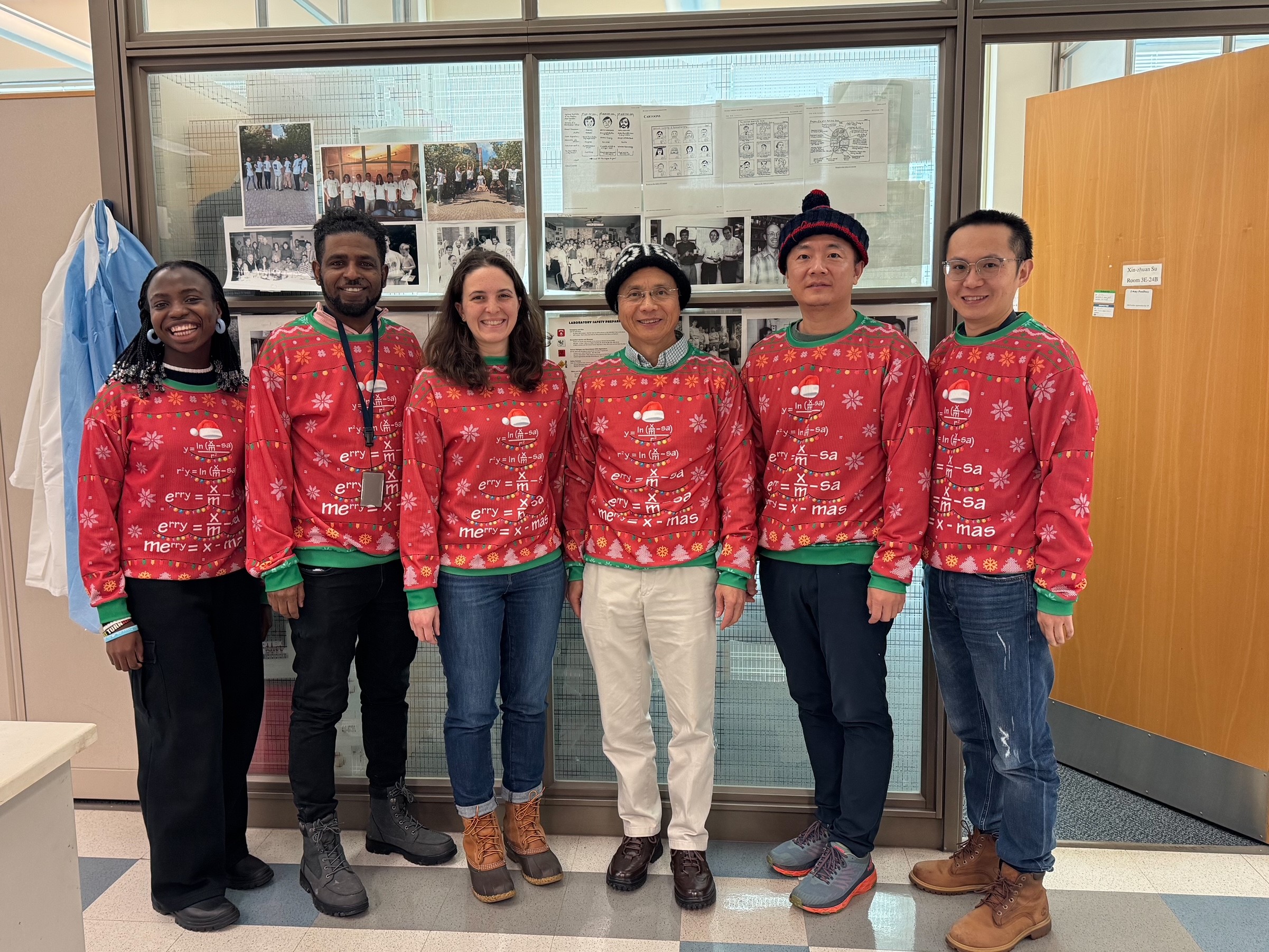Malaria Functional Genomics Section
Established in 2001
Xin-zhuan Su, Ph.D.
Chief, Malaria Functional Genomics Section

Major Areas of Research
- Plasmodium genetics and genomics
- Host-parasite interaction and molecular signaling
- Antimalarial drug development and mechanisms of drug resistance
- Genetic crosses to map malaria parasites (rodent and human) and host genes that contribute to virulence, disease severity, and immune singling
- Mice are infected with progenies from genetic crosses of Plasmodium yoelii and Plasmodium berghei. Levels of host and parasite gene expression are linked to parasite genetic loci. Candidate genes are identified and tested for their roles in disease pathogenesis and host immune responses.
- Characterized several host genes playing a role in type I interferon responses
- Efforts are being made to screen for small molecules that can modulate host immune responses.
- MS-MS to characterize metabolic changes in mice after infections with various strains/species of rodent malaria parasites
- Experiments to study selective metabolites in disease severity are currently being conducted.
- Screening and testing compounds, either synthetic or extracted from natural sources, for anti-malaria activities
- Studying parasite mobility, including the interaction of the parasite with the matrix and factors that can affect parasite movement
Program Description
Malaria is a life-threatening disease caused by Plasmodium parasites transmitted through the bites of infected Anopheles mosquitoes. The World Malaria Report by the World Health Organization estimated 263 million malaria cases and approximately 597,000 deaths worldwide in 2023. Malaria is also a serious threat to travelers and military personnel stationed abroad. Malaria imposes a substantial economic burden worldwide, including healthcare costs and lost productivity, hindering economic development.
Our laboratory works to understand the disease mechanism and develop methods for effective malaria control and prevention. We develop and use genetic and genomic approaches to study host-malaria parasite interaction and molecular mechanisms of the interaction using the rodent malaria parasite Plasmodium yoelii and Plasmodium berghei as models. We have characterized large numbers of microsatellites and single nucleotide polymorphisms (SNPs) from several P. yoelii parasites and performed various genetic crosses to identify parasite genes linked to parasite development, virulence, and drug resistance. We study host genes and immune signaling pathways in response to parasite infections, focusing on innate signaling and regulation of type I interferon production and inflammatory responses after malaria infection.
We are also interested in screening and developing new antimalarial drugs using the human malaria parasite Plasmodium falciparum, particularly compounds that can block malaria transmission and modulate host immune responses while killing the parasites.
Biography
Education
Ph.D., 1990, University of Georgia, Athens, GA
Languages Spoken
Mandarin and Amoyese ChineseDr. Su received his Ph.D. in parasitology from the University of Georgia in 1990. He joined the NIAID Laboratory of Parasitic Diseases in 1992 and became an investigator in the Laboratory of Malaria and Vector Research in 2001 and a senior investigator in 2006.
Selected Publications
Peng YC, Wu J, He X, Dai J, Xia L, Valenzuela-Leon P, Tumas KC, Singh BK, Xu F, Ganesan S, Munir S, Calvo E, Huang R, Liu C, Long CA, Su XZ. NAD activates olfactory receptor 1386 to regulate type I interferon responses in Plasmodium yoelii YM infection. Proc Natl Acad Sci U S A. 2024 Jun 4;121(23):e2403796121.
Tumas KC, Xu F, Wu J, Hernandez M, Pattaradilokrat S, Xia L, Peng YC, Lavali AM, He X, Singh BK, Zhang C, Percopo C, Qi CF, Huang S, Long CA, Su XZ. Dysfunction of CD169+ macrophages and blockage of erythrocyte maturation as a mechanism of anemia in Plasmodium yoelii infection. Proc Natl Acad Sci U S A. 2023 Oct 3;120(40):e2311557120.
He X, Ashbrook AW, Du Y, Wu J, Hoffmann HH, Zhang C, Xia L, Peng YC, Tumas KC, Singh BK, Qi CF, Myers TG, Long CA, Liu C, Wang R, Rice CM, Su XZ. RTP4 inhibits IFN-I response and enhances experimental cerebral malaria and neuropathology. Proc Natl Acad Sci U S A. 2020 Aug 11;117(32):19465-19474.
Wu J, Xia L, Yao X, Yu X, Tumas KC, Sun W, Cheng Y, He X, Peng YC, Singh BK, Zhang C, Qi CF, Bolland S, Best SM, Gowda C, Huang R, Myers TG, Long CA, Wang RF, Su XZ. The E3 ubiquitin ligase MARCH1 regulates antimalaria immunity through interferon signaling and T cell activation. Proc Natl Acad Sci U S A. 2020 Jul 14;117(28):16567-16578.
Nair SC, Xu R, Pattaradilokrat S, Wu J, Qi Y, Zilversmit M, Ganesan S, Nagarajan V, Eastman RT, Orandle MS, Tan JC, Myers TG, Liu S, Long CA, Li J, Su XZ. A Plasmodium yoelii HECT-like E3 ubiquitin ligase regulates parasite growth and virulence. Nat Commun. 2017 Aug 9;8(1):223.
Yuan J, Cheng KC, Johnson RL, Huang R, Pattaradilokrat S, Liu A, Guha R, Fidock DA, Inglese J, Wellems TE, Austin CP, Su XZ. Chemical genomic profiling for antimalarial therapies, response signatures, and molecular targets. Science. 2011;333(6043):724-9.
Visit PubMed for a complete publication listing.
Patents
Su XZ, Yuan J, Raj D, Pattaradilokrat S, Johnson R, Huang R, inventors; The United States of America, as represented by the Secretary, Dept. of Health and Human Services, assignees. Compounds That Treat Malaria And Prevent Malaria Transmission. United States patent US 9,375,424 B2. 28 Jun 2016.
Sim KL, Chitmis C, Miller LH, Peterson DS, Su XZ, Wellems TE, inventors; The United States of America as represented by the Department of Health and Human Services, assignees. Binding Domains From Plasmodium Vivax And Plasmodium Falciparum Erythrocyte Binding Proteins. United States patent US 6,962,987 B2. 08 Nov 2005.
Research Group
The Malaria Functional Genomics Section develops and uses genetic and genomic approaches to study host-malaria parasite interaction and molecular mechanisms of the interaction using the rodent malaria parasite Plasmodium yoelii as a model.


